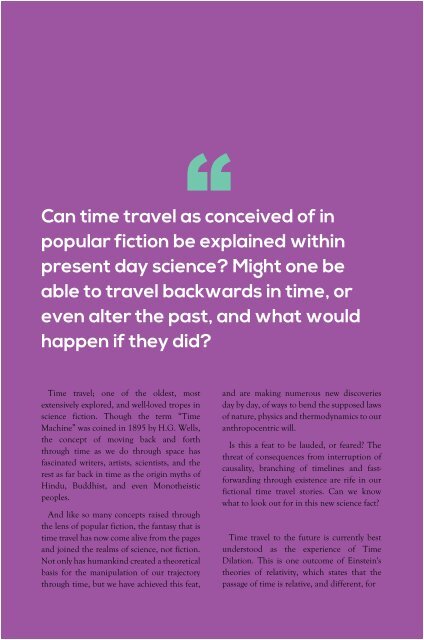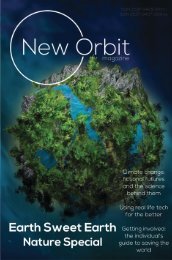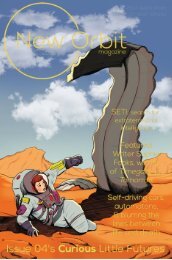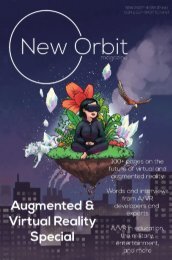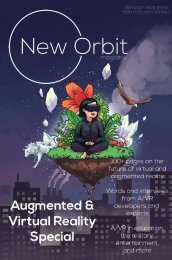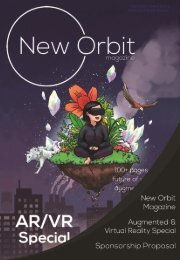New Orbit Magazine Online: Issue 03, June 2018
Create successful ePaper yourself
Turn your PDF publications into a flip-book with our unique Google optimized e-Paper software.
Time travel; one of the oldest, most<br />
extensively explored, and well-loved tropes in<br />
science fiction. Though the term “Time<br />
Machine” was coined in 1895 by H.G. Wells,<br />
the concept of moving back and forth<br />
through time as we do through space has<br />
fascinated writers, artists, scientists, and the<br />
rest as far back in time as the origin myths of<br />
Hindu, Buddhist, and even Monotheistic<br />
peoples.<br />
And like so many concepts raised through<br />
the lens of popular fiction, the fantasy that is<br />
time travel has now come alive from the pages<br />
and joined the realms of science, not fiction.<br />
Not only has humankind created a theoretical<br />
basis for the manipulation of our trajectory<br />
through time, but we have achieved this feat,<br />
and are making numerous new discoveries<br />
day by day, of ways to bend the supposed laws<br />
of nature, physics and thermodynamics to our<br />
anthropocentric will.<br />
Is this a feat to be lauded, or feared? The<br />
threat of consequences from interruption of<br />
causality, branching of timelines and fastforwarding<br />
through existence are rife in our<br />
fictional time travel stories. Can we know<br />
what to look out for in this new science fact?<br />
Time travel to the future is currently best<br />
understood as the experience of Time<br />
Dilation. This is one outcome of Einstein's<br />
theories of relativity, which states that the<br />
passage of time is relative, and different, for


